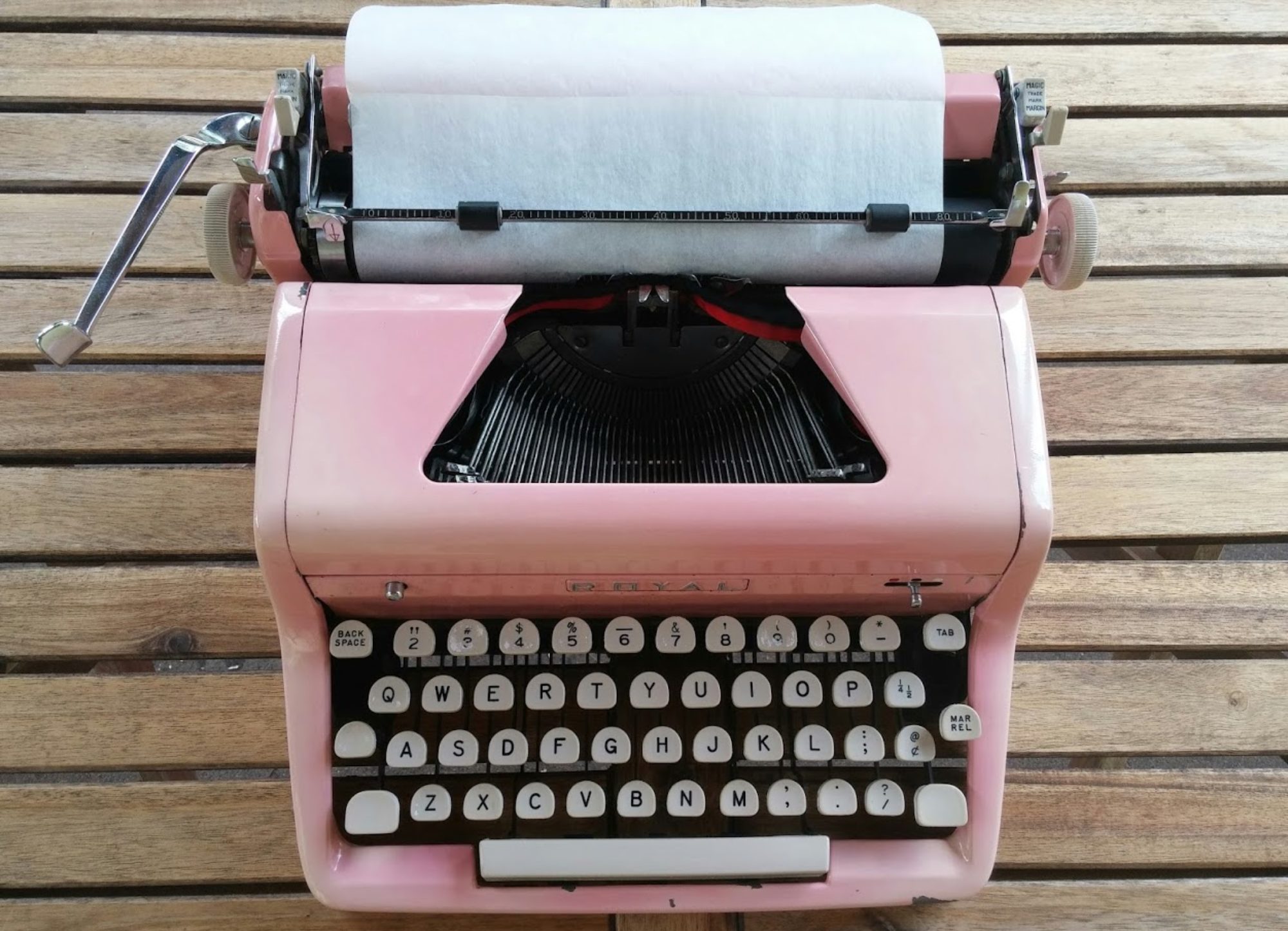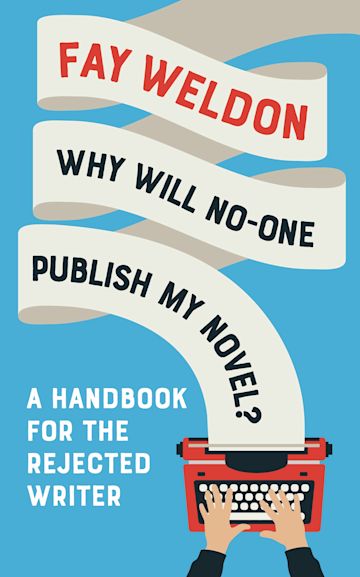Because I enjoyed all the talk of writing in her autobiographical Auto da Fay (2002), I was excited to see this palm-sized volume on a remainder shelf.
But, honestly, I wasn’t expecting much: its size and length suggested someone had been thinking more about marketing and stocking-stuffer possibilities than its contents.
There is concrete and helpful advice here. As the subtitle indicates, Weldon is writing “A Handbook for the Rejected Writer” but, of course, that’s every writer, to some degree.
There’s comic potential and Weldon puts it to work. What are your options when you’ve received yet another rejection? “You can spend the rest of your life disappointed and aggrieved,” she posits, to start. But she present hands-on solutions too.
No quick-fixes, but reliable problem-solving. “So look for what you were trying to say in the first place. It’s in there somewhere, the good idea that launched the whole process: the loving phrase spoken, the hateful comment made, the telling conversation overheard, the news item read—whatever it was that impelled you to take up your pen or keyboard.”
She’s a career writer. “Readers, I would suggest, don’t much change over the centuries,” she suggests. “They like a good simple robust story: a lot of sex, a hint of mortality, to be made to laugh, to be made to cry and with any luck, to think.” There’s the basic outline for success (i.e. to avoid further rejection). With one solid solution: “So provide it.”
There are many reasons why an editor or agent might not connect with a writer’s work. She’s often quietly funny when describing them:
“This [too much fine writing, too little plot] too can happen. You’ve been a natural writer since you took up a pen. Teachers have marvelled at your skill with words, the beauty of your prose, your astonishing gift for metaphor and so on. It’s not just your mother who thinks you are wonderful, but colleagues and established writers who wish they could write as well as you. But the fact is you’re not a novelist, you’re more of a poet, though since you write to the end of the line you haven’t realized it.”
Sometimes her humour is bolder. She writes a funny scene about how things go awry in a publishing house. “This is the worst possible case,” she admits, “but I had fun writing it, and these things happen. If it has, don’t give in, take steps.” Partly due to the nature of the book, compact and concise, the focus of her advice is to act.
One limitation of this volume’s size is the limited capacity to refer to other writers’ work and experiences, to recommend other volumes on craft. There are a few references in the text, like Graham Greene’s advice on intuition, which Weldon summarises: “A story has no beginning or end: arbitrarily one chooses, the moment of experience from which to look back or from which to look ahead.”
There are two Gone Girl references wedged in with the classic examples and nine recommendations on the last page (two Vonneguts). Writers looking for contemporary references must look elsewhere. But Weldon makes the classics work: “Hardy worked from press cuttings for Tess of the d’Urbervilles, Flaubert for Madame Bovary; don’t be sniffy.”
Ultimately, Weldon rests on the oft-repeated truth: “All novelists go about things differently. There is no one way of doing anything.” Which is a comfort, after she’s shared so much of her own way.
A useful resource for writers.
Fay Weldon. Why Will No-One Publish My Novel? A Handbook for the Rejected Writer. London: Bloomsbury, 2018.


“But the fact is you’re not a novelist, you’re more of a poet, though since you write to the end of the line you haven’t realized it.”
That’s exactly what I look for in a novel (don’t you think Praiseworthy might be the world’s longest poem?). I know the average reader – and the average publisher – is looking for stories, and I do too, but stories without ‘poetry’ are, after a while, tedious.
Though as I may have commented elsewhere, I do like my poet/writers to get past high school standard.
[Edited only to correct my own typo in the quotation from the post above!]
I’d say I’m with you on that. Although I know we both have situations where we prioritise the story too (e.g. your listening while travelling, my listening while washing dishes). And that is how I think of Praiseworthy too, but I suppose it would have been eleventy-billion pages long if she’d had linebreaks, eh? /laughs
I should also say I enjoy the meta nature of Weldon’s writing, as much as I’ve read, and I’m surprised she didn’t slip a little fiction into this NF.
Hah, actually she does! There’s a lengthy bit in the middle, an extended and imagined scene in a publishing house, presented as fiction (and quite entertaining).
She does have a good bit of writing advice on her website too. I bet you’d enjoy it!